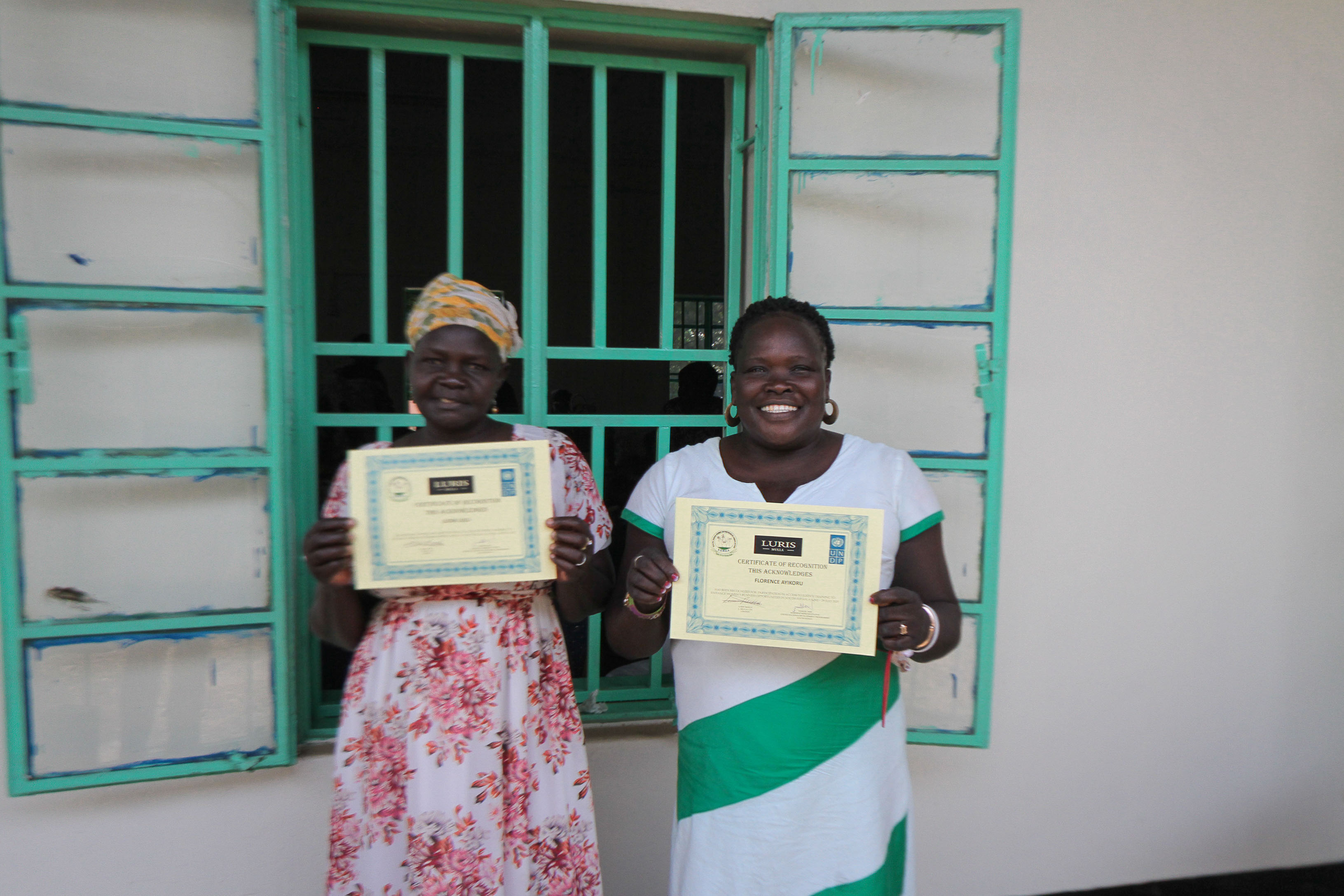An entrepreneur displays her goods at the legal empowerment training, held at the Women's Union in Juba, South Sudan. Photo: UNDP
South Sudanese women have been involved in entrepreneurship activities to support their families for generations. Making up more than half of South Sudan’s population, women are often the sole breadwinners for their families. Yet due to patriarchal society, their formalized business progress is often limited. Furthermore, women are sometimes subject to abuse and harassment while in their place of business.
UNDP is working to address these issues through its Access to Justice, Security and Human Rights Strengthening programme with support from the Accelerator Lab. 50 businesswomen from the South Sudan Women Entrepreneurs Association (SSWEA) were selected to improve their understanding of existing business laws in South Sudan and Juba municipality and provided with business legal skills to improve the daily operations of their enterprises.
“The women have received the skills on taxes because they are facing a lot of challenges in the market, especially in registration. There are more than 5 receivers coming in for collection of money: the mayor’s office, the payam, the police, security, and the Central Equatoria state department. These are a few I can mention,” said SSWEA's Executive Director.
Closing session of the training on legal empowerment for women entrepreneurs. Photo: UNDP
Some of the women close their business when subjected to unanticipated and high taxes multiple times due to running out of funds needed to operate.
“My newly opened salon had to close only after a few months of operation because of the taxes. Why do I have to be taxed this much?” said Florence Hadiya, one of the trainees.
The series of seminars covered company registration; taxes and contracts; human rights; Sexual and Gender Based Violence (SGBV); laws that offer protection, how to seek for help and dealing with local law enforcement agencies; how to report and discuss issues regarding sexual harassment; business management skills; branding and advocacy for justice; and key financial literacy concepts to improve the women’s’ abilities to secure loans from banks.
“This project has made a difference because I have watched these women gain the confidence to return to their business and have saved more money from their sales because they no longer give in to multiple taxes,” said Finella Iams, a technical advisor of the project.
“The empowerment of businesswomen has been a very humbling experience and has exposed me to a power that I never knew I had inside,” said Luris Mulla, a South Sudanese legal expert consultant who is led the training. “It is the same power that gives the women the strength to survive their own hardship.”
Participants display their certificates following the completion of the training. Photo: UNDP
“From this program I benefit…I can teach people. There's also an advantage to promote peace among the women because I'm the tutor. I'm teaching women and even can help women on how to help themselves by setting up daily sales and [other business practices] so they may get money for school fees for their children," said Josephine Roppy, one of the trainees.
In Nimule, UNDP’s Accelerator Lab is tracking the impact of business skills training, financial literacy basics and mobile banking on women entrepreneurial success. From a legal perspective, providing legal awareness and support matter for women’s economic inclusion, making it possible for females in the informal and formal business sector to increase their revenue and contribution to economic growth. Such measures give them greater independence and negotiating power at home and in public to ensure their protection and enable them to meaningfully participate in matters affecting them.
Learn more about UNDP's work improving access to justice and promoting rule of law in South Sudan.

 Locations
Locations


